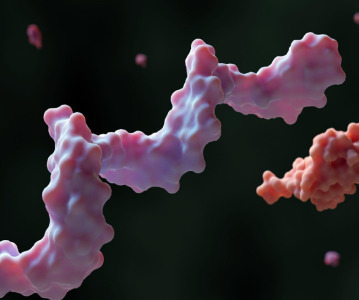Researchers find a way to deliver drugs to the placenta to support healthier pregnancies
Discovery provides proof of principle for safe, targeted delivery of drugs to the placenta to improve pregnancy outcomes.
A new study by an international team of researchers, including Erkki Ruoslahti, distinguished professor at Sanford Burnham Prebys Medical Discovery Institute's (SBP) NCI-Designated Cancer Center, and adjunct professor at the Center for Nanomedicine and Department of Molecular, Cellular, and Developmental Biology, UC Santa Barbara, has found a way to selectively deliver drugs to the placenta without harming the fetus
.The discovery could one day help prevent some premature births and treat complications such as preeclampsia, a condition characterized by high blood pressure and sometimes, fluid retention. The study appears in the journal Science Advances.
"Our findings emphasize the similarities between placentas and tumours," said Ruoslahti. The scientists demonstrated that two peptides — chains of amino acids — originally used to target tumours selectively, will perform the same function on a placenta, delivering drugs which improve placental function and benefit the growing baby without causing it harm. "That similarity makes it possible to use existing tumour-homing peptides. This paper shows that this strategy increases the delivery of drugs into the placenta," he added.
Many pregnancy complications are the result of the placenta not growing or functioning properly, but currently there are no drugs that can be used to treat those problems. Instead, doctors have to induce early delivery, which puts the infant at increased risk of developing infections and cerebral palsy in the short term and heart disease and diabetes later in life. This new research has the potential to avoid these problems by treating the baby in utero, thereby avoiding induced labour.
"Placentas behave like well-controlled tumours," said lead author Lynda Harris, of the University of Manchester in the UK. "They grow quickly, produce growth hormones and evade the immune system. A lot of cancer research focuses on finding ways of delivering drugs to kill the tumour without affecting the rest of the body. We had the idea that if we could selectively target the placenta in the same way, we could deliver other drugs to help improve placental function and therefore treat pregnancy complications."
Using a mouse model, the researchers delivered a growth hormone to the placenta via peptide-coated nanoparticles. The drug had no effect on normal-sized fetuses but caused undersized ones to grow. The targeted drug did not build up in the mother mouse's organs, and there were no levels detected in the mouse fetuses, suggesting that this method has the potential to one day be used in humans. The possibility of potential harmful effects still exists for mothers who have undiagnosed cancers because the drugs also target their tumours, but a screening program could overcome this problem.
"Only one drug for use during pregnancy has been licensed in the last 20 years," Harris said. "By developing this platform we have opened up the possibility that any number of new drugs can be adapted and then used safely to treat common and serious pregnancy complications."
Related News
-
News Google-backed start-up raises US$600 million to support AI drug discovery and design
London-based Isomorphic Labs, an AI-driven drug design and development start-up backed by Google’s AI research lab DeepMind, has raised US$600 million in its first external funding round by Thrive Capital. The funding will provide further power t... -
News AstraZeneca to invest US$2.5 billion in Beijing R&D centre
Amid investigations of former AstraZeneca China head Leon Wang in 2024, AstraZeneca have outlined plans to establish its sixth global strategic R&D centre in China. Their aim is to further advance life sciences in China with major research and manufact... -
News Experimental drug for managing aortic valve stenosis shows promise
The new small molecule drug ataciguat is garnering attention for its potential to manage aortic valve stenosis, which may prevent the need for surgery and significantly improve patient experience. -
News How GLP-1 agonists are reshaping drug delivery innovations
GLP-1 agonist drug products like Ozempic, Wegovy, and Mounjaro have taken the healthcare industry by storm in recent years. Originally conceived as treatment for Type 2 diabetes, the weight-loss effects of these products have taken on unprecedented int... -
News A Day in the Life of a Start-Up Founder and CEO
At CPHI we work to support Start-Up companies in the pharmaceutical industry and recognise the expertise and innovative angles they bring to the field. Through our Start-Up Programme we have gotten to know some of these leaders, and in this Day in the ... -
News Biopharmaceutical manufacturing boost part of new UK government budget
In their national budget announced by the UK Labour Party, biopharmaceutical production and manufacturing are set to receive a significant boost in capital grants through the Life Sciences Innovative Manufacturing Fund (LSIMF). -
News CPHI Podcast Series: The power of proteins in antibody drug development
In the latest episode of the CPHI Podcast Series, Lucy Chard is joined by Thomas Cornell from Abzena to discuss protein engineering for drug design and development. -
News Amgen sues Samsung biologics unit over biosimilar for bone disease
Samsung Bioepis, the biologics unit of Samsung, has been issued a lawsuit brought forth by Amgen over proposed biosimilars of Amgen’s bone drugs Prolia and Xgeva.
Recently Visited
Position your company at the heart of the global Pharma industry with a CPHI Online membership
-
Your products and solutions visible to thousands of visitors within the largest Pharma marketplace
-
Generate high-quality, engaged leads for your business, all year round
-
Promote your business as the industry’s thought-leader by hosting your reports, brochures and videos within your profile
-
Your company’s profile boosted at all participating CPHI events
-
An easy-to-use platform with a detailed dashboard showing your leads and performance







.png)